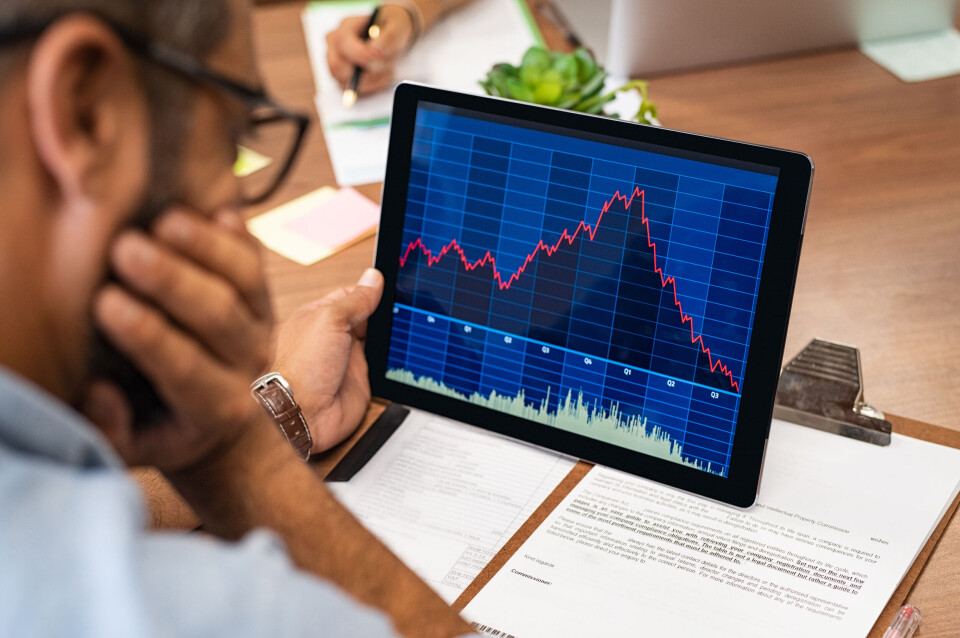-
Price rises for Netflix in France
The Standard (with ads) and Premium packages are increasing by €24 a year
-
Which French motorway toll subscription offers the best deal?
The ‘best’ packages vary depending on how often you use the road, the type of vehicle, and your destination
-
France considers linking health reimbursements to income to curb deficit
State auditors urge reform as government faces €15.3bn shortfall in 2024
Investing: avoid fads and spread risk to make money for life in France
Partner article: Christopher Davenport of Kentingtons tells us what to consider when financial markets are turbulent - and a word from Warren Buffet

Financial markets are very volatile as I write this.
The S&P 500, an index of the most important 500 US companies, for example, is down by 20% since the start of the year.
What exactly is a person to do? We will come back to this question.
First of all, I would like to touch on portfolio construction, which plays a major part in long-term performance.
The S&P 500 is just one index, so let me present a few other figures (all approximate).
The Nasdaq, the index of US technology companies, is down 32%; Amazon is down 45%; Facebook is down 56%; Netflix is down 82%.
The UK FTSE 100, again at the time of writing, is down just 5% from its February all-time high.
The latter might lead you to believe the UK is the place to invest.
Looking at the world’s leading stock market indexes, however, there are some longer-term numbers to consider.
Since the dotcom bubble highs in the year 2000, the UK FTSE 100 is up just 5%.
By comparison, the German DAX 30 is up 72%, the French CAC 40 is down 9%, the Japanese Nikkei 225 is up 23%, the United States S&P 500 is up by 160%, and emerging markets (EEM) are up 305%.
These are a lot of statistics – sorry about that! – but what are the takeaways?
Diversification
The primary takeaway is diversification.
Investors should most certainly be considering these longer-term timeframes.
What will happen in the next 20 years? Will Europe start to outperform, will emerging markets continue their ascent? And what about the US and Japan?
These are questions nobody can possibly answer with certainty and, as we can see from the numbers, the risks of betting big in one area and being wrong can be catastrophic to long-term investors.
Consequently, it is very important not to put all your eggs in one basket, be that a company, an index, or even a single country.
Spreading risk globally greatly reduces the risk of picking a dud.
Today, very low-cost ways of doing just this exist.
Fads can be a flash in the pan
The second takeaway is not to chase the latest stock market fads.
The tech stocks mentioned earlier in this article, for example, exemplified by Netflix, were the darlings of the post-Covid market rally.
All those I referenced are well-established companies. Some of their lesser-known rivals will never recover.
A global portfolio will normally avoid the worst of these types of repricing.
Selling is probably not the solution
So, coming back to our question at the beginning: what is one to do when global markets are down approximately 20%, there is panic in the air and further scaremongering in the media?
First and foremost, this is usually a very bad time to sell, as you would be locking in losses.
Indeed, a certain Warren Buffet, one of the most successful investors in the world, would suggest quite the opposite.
He once memorably advised that we should “be fearful when others are greedy and be greedy when others are fearful”.
Let us think about it another way.
If you were going clothes shopping, you would not think: “Oh, I’ll just wait until the sales are over.”
The point is that ‘time in’ the market is significantly more important than ‘timing’ the market.
Better still is an opportunity to do both.
Related articles
Inflation in France expected to reach 6.8% by end of 2022
What will President Macron's second term mean for my money in France?
Six common pitfalls financial experts see when people move to France
























